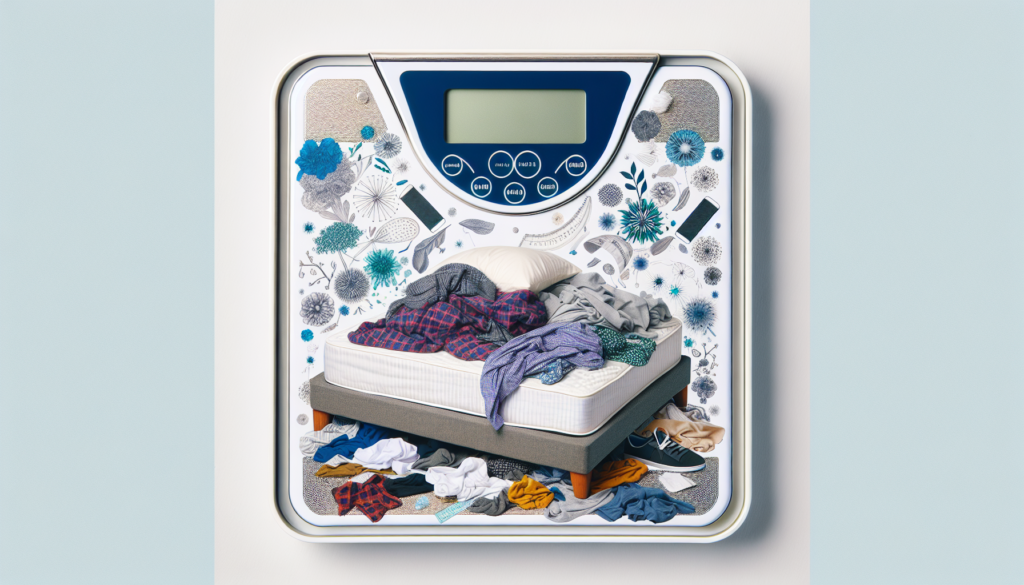Have you ever wondered why your weight loss efforts seem as futile as trying to teach a cat to fetch? You eat all the green stuff, say no to the deliciously evil donuts, even start to embrace your gym’s treadmill as a distant, noisy cousin, but the scale just won’t budge. Could it be that unholy hours spent in pursuit of excellence in Netflix binging, Twitter lurking, or contemplating the deeper meanings of life at 3 AM might be the actual culprits sabotaging your fitness goals? Yes, indeed! When it comes to weight loss, sleep is not just a side note; it’s more like that unexpected plot twist in a TV series that suddenly makes everything clear.

Sleep: The Underestimated Hero in Weight Management
In the grand stage play of health, sleep takes on a dual role: the elusive leading actor everyone wants more of and the understudy no one pays attention to. While experts have waxed lyrical about calories, carbs, and cardio routines, poor old sleep has been sipping on tea in the corner, waiting for someone to acknowledge its multi-talented brilliance. The truth is, neglecting sleep could be the quiet saboteur behind your scale-frustrating endeavors.
The Simple Science of Sleep and Weight
Fusion of sleep, or lack thereof, with weight is as real as your urge to munch on midnight snacks. When you don’t get enough Z’s, your body starts playing a sneaky little game. You see, sleep deprivation can mess with your body’s hormones—specifically ghrelin and leptin. Now, these two sound like a mismatched DJ duo, but they actually play a significant role in your hunger levels and energy balance. Ghrelin, often dubbed the “hunger hormone,” revs up your appetite, while leptin tells your brain when you’re full.
In simple terms, not getting enough sleep is like giving ghrelin a microphone at the dinner table, making it scream for pizza and cake, while poor leptin is trying to whisper its sage advice over the cacophony. The beauty sleep you skimp on literally sends an all-you-can-eat invitation to your stomach.
The Cortisol Connection
Cortisol, often known as the stress hormone, should be a fleeting visitor, not a permanent resident. But lose sleep, and it’s as if you’re extending cortisol a VIP pass to crash at your place indefinitely. Higher cortisol levels not only stress you out but also encourage your body to hang onto fat like it’s collecting it for a rainy day. It particularly holds onto belly fat, which nobody invited to the waistline party.
All Nighters and Weight Woes: The Plot Thickens
Pulling all-nighters might look cool in movies when characters are solving world crises over cups of java. But in stark reality, it does jack up your weight. A sleep-deprived brain is much like a toddler without a nap—cranky, unreasonable, and demanding. This mental fog and decision-making impairment lead you to reach out for quick-energy sources, AKA comfort foods, rather than a balanced diet.
Sugar, Sugar, Everywhere
Your sleep-starved mind delights in convenience over common sense, meaning pastries over protein-rich foods. With metabolic functions as sluggish as your Monday morning starts, your body is less efficient at processing sugar. This inefficiency can lead to insulin resistance, which not only contributes to weight gain but waves a bright “hello” to the risk of type 2 diabetes. Sleep loss is literally the gift that keeps on giving – and not in a good way.
Hitting Pause on Exercise
To add insult to injury, not getting enough resting-state bliss makes you wish exercise was just an urban myth. Every fiber of your being cries out for the sweet embrace of a couch rather than the stern call of a workout regime. Less physical activity combined with poor dietary choices; it’s like deciding to go on a long drive with your car stuck in neutral.
The Domino Effect: Health Risks Beyond Just a Tighter Belt
Sleep deprivation isn’t just playing tricks with your waistline; it’s lining up a series of health risks like an overzealous game of dominoes. Being short on shut-eye increases your risk of cardiovascular diseases, depression, limited life joy, and just in case that wasn’t enough—early mortality. Yes, living longer and thinner is much harder with sleep deprivation knocking on your door every night like an overenthusiastic census taker.
Mental Health Minefield
It’s not just your physical health that takes a hit. Sleep deprivation throws a disco party in your brain that nobody asked for. Mood disorders are more likely to pop by, and your stress levels can shoot through the roof faster than you can say “insomniac.” Dragging through the day with less pep than a deflated cheerleader’s pom-pom isn’t fun for anyone, least of all you.
Immune System on a Slow Burn
Let’s talk about your immune system—a loyal guardian until you start treating it like your favorite ignored houseplant. Without enough sleep, its defenses wobble, leaving you more vulnerable to those charming seasonal bugs and shots of the sniffles. A weakened immune system also doesn’t play nicely with any weight loss strategy you have in mind.
Can’t Sleep, Won’t Sleep: Addressing the Issue
Alright, so we’ve convinced you of sleep’s superpower status—you now recognize how prioritizing it holds the key to both weight management and overall well-being. But how can you ensure you drift off to the land of nod without tossing and turning for hours?
Crafting the Ideal Sleep Sanctuary
Creating the right habitat for sleep is key. Picture a serene atmosphere where fairy lights are subtle and blue light from screens is a distant memory. Mainly, ensure your bedroom is more “tranquil retreat” and less “multi-purpose room of chaos.” Block out noise, keep the temperature just right, and invest in pillows that don’t resemble pancake batter in a pillowcase.
Table: Sleep Environment Dos and Don’ts
| Dos | Don’ts |
|---|---|
| Keep the room dark and cozy | Use electronic devices before bed |
| Consider white noise machines | Drink caffeine after midday |
| Maintain a regular sleep schedule | Bring work into the bedroom |
The Art of Unwinding
Unplugging from your frantic pace before hitting the hay is crucial. Engage in activities that signal your body to downshift: reading, gentle yoga, meditation, or simply chatting with someone who doesn’t require high-level cognitive function from you. Avoid delving into past anxieties or future uncertainties right before sleep, lest you set the stage for a mental rerun of a dystopian drama.
The Underestimated Power of Routine
Remember those bedtime routines from childhood? It turns out they weren’t just a parental ploy to sneak in some “me-time.” Consistency is key when resetting your battered sleep schedule. Try making it a ritual: glass of warm water, washing your face, relaxing stretches, and ten deep exhalations. Your body and mind need cues to remind them that it’s time to switch from day mode to snoozeville.

When to Seek Professional Help
If despite your best efforts, sliding into sleep remains murkier than navigating the inside of a handbag, it might be time to call in the experts. Chronic insomnia, sleep apnea, and other sleep-related disorders are real conditions that benefit from medical perspective. Consulting with a sleep therapist or medical professional ensures you’re not tackling the issue alone.
In conclusion, sleep is like that unlikely hero who reveals themselves right when all hope seems lost. When used right, this magical state affects everything from your waistline sensibilities to your broader health prospects. Embrace it, prioritize it, even schedule it like you wouldn’t miss your favorite show’s finale—and watch your weight loss goals, along with your general well-being, get a luxurious upgrade. Just remember: a dreamy night is the ultimate equipment for a streamlined you. Sleep tight!
